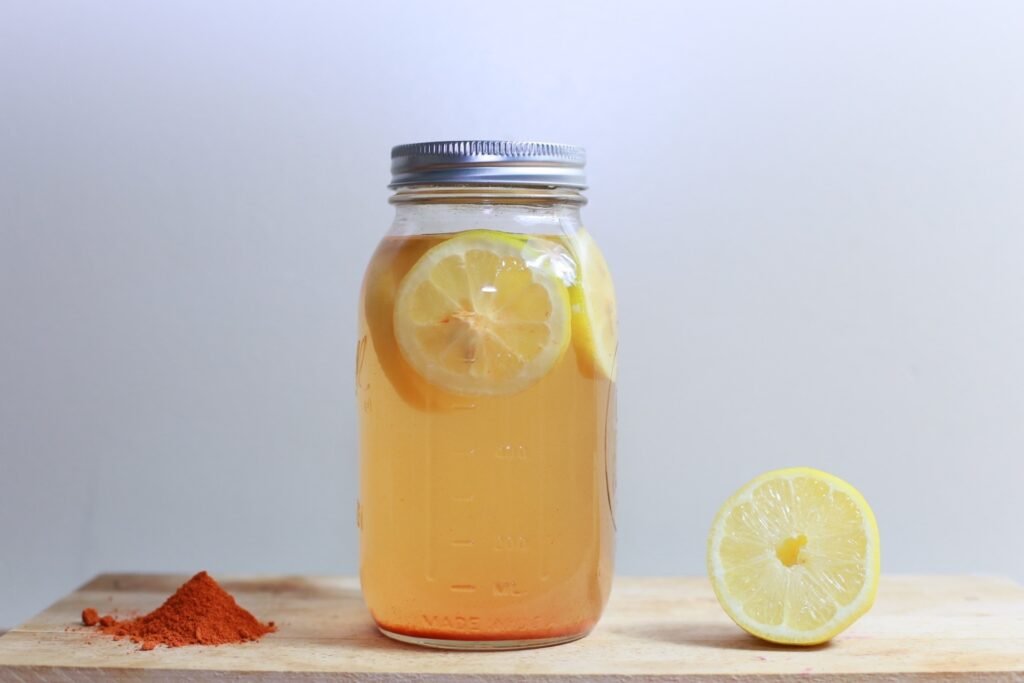Did you know that there might be a tangy solution to the problem of kidney stones? In an intriguing study, researchers found that consuming citrus fruits, like oranges and lemons, could potentially help prevent the formation of these painful stones. By examining the impact of citrus fruit intake on a group of individuals, the study revealed that those who consumed more citrus fruits had a significantly lower risk of developing kidney stones. So, if you’re looking for a way to add some zest to your health routine, adding a splash of citrus might just do the trick.
The Formation of Kidney Stones
Kidney stones, also known as renal calculi, are hard mineral and salt deposits that form in the kidneys. They can range in size from a grain of sand to a large stone that can block the urinary tract. The formation of kidney stones can be a painful and debilitating condition, affecting millions of people worldwide. Understanding the causes and prevention methods for kidney stones is crucial for maintaining kidney health.
Introduction to Kidney Stones
Kidney stones are formed when certain substances in urine, such as calcium, oxalate, and uric acid, become highly concentrated and crystallize. These crystals then bind together to form a solid mass, which can grow larger over time. The size and composition of kidney stones can vary, affecting the symptoms and treatment options for individuals.
Types of Kidney Stones
There are several types of kidney stones, each with its own unique composition and causes. The most common types include calcium oxalate stones, uric acid stones, and struvite stones. Calcium oxalate stones are the most prevalent, accounting for around 75% of all kidney stones. Uric acid stones form when there is an excess of uric acid in the urine, often due to a high-purine diet. Struvite stones are primarily caused by urinary tract infections and are associated with the presence of bacteria.
The Role of Diet in Kidney Stone Formation
Diet plays a significant role in the formation of kidney stones. Certain dietary factors can contribute to an increased risk of stone formation, while others can help prevent their occurrence. Understanding the importance of diet in kidney stone prevention is crucial for individuals at risk.
Importance of Diet in Kidney Stone Prevention
Maintaining a healthy and balanced diet is essential for kidney stone prevention. By making certain dietary modifications, individuals can reduce their risk of developing kidney stones. This includes consuming foods that are low in oxalate and purines, while also increasing fluid intake and consuming foods rich in certain nutrients.

This image is property of images.unsplash.com.
Contributing Factors of Kidney Stone Formation
Several factors contribute to the formation of kidney stones, including dehydration, high salt intake, excessive intake of animal protein, and a diet high in oxalate and purines. Genetics, certain medical conditions, and medications can also increase the risk of stone formation. By addressing these contributing factors through dietary changes and lifestyle modifications, individuals can proactively reduce their risk of developing kidney stones.
Introduction to Citrus Fruits
Citrus fruits, such as lemons, oranges, grapefruits, and limes, are well-known for their refreshing taste and vibrant colors. These fruits are not only delicious but also packed with essential vitamins and minerals that are beneficial for overall health. Including citrus fruits in your diet can provide numerous health benefits, including kidney stone prevention.
Vitamin C Content in Citrus Fruits
Citrus fruits, particularly oranges and grapefruits, are excellent sources of vitamin C. Vitamin C is a powerful antioxidant that helps protect cells from damage, boosts the immune system, and contributes to the formation of collagen. Including citrus fruits in your diet can help ensure an adequate intake of vitamin C, which is essential for maintaining optimal health.
Other Nutrients Present in Citrus Fruits
In addition to vitamin C, citrus fruits contain various other nutrients that are vital for a healthy body. These include potassium, folate, fiber, and various phytochemicals. Potassium helps regulate blood pressure and supports proper muscle function, while folate is essential for DNA synthesis and cell division. Fiber aids in digestion and promotes a healthy gut, and phytochemicals have been shown to have antioxidant and anti-inflammatory properties, potentially reducing the risk of chronic diseases.
Citrus Fruits as a Source of Citrate
Citrus fruits also contain a significant amount of citrate, a compound that plays a crucial role in kidney stone prevention. Citrate acts by binding to calcium in the urine, preventing the formation of calcium oxalate crystals, the most common type of kidney stone. Increasing citrate levels in the urine can help reduce the risk of stone formation and promote overall kidney health.

This image is property of images.unsplash.com.
The Role of Citrate in Kidney Stone Prevention
Citrate serves as a natural inhibitor of kidney stone formation. It helps prevent the aggregation and growth of crystals in the urinary tract, reducing the likelihood of stone formation. By increasing urinary citrate levels, individuals can decrease the risk of developing kidney stones and potentially prevent their recurrence. Including citrate-rich foods, such as citrus fruits, in the diet can be an effective strategy for kidney stone prevention.
Increased Urinary Citrate Excretion
Consuming citrus fruits can lead to increased urinary citrate excretion. Studies have shown that individuals who consume citrus juices, such as lemon or orange juice, have higher levels of citrate in their urine compared to those who do not. This increase in urinary citrate excretion helps inhibit the formation of calcium oxalate crystals, reducing the risk of kidney stone formation.
Reduced Stone Formation Risk
By inhibiting crystal formation, citrate can significantly reduce the risk of stone formation. The presence of citrate in the urine prevents the crystals from binding together and forming larger stones. Regular consumption of citrus fruits can help maintain adequate urinary citrate levels, providing a natural defense against kidney stone formation.
Boosted Kidney Function
Incorporating citrus fruits into your diet can also have a positive impact on overall kidney function. The compounds present in citrus fruits help support the kidneys’ filtering function and promote their overall health. Additionally, the high water content of citrus fruits helps maintain proper hydration, which is essential for kidney function and the prevention of stone formation.
Lemons and Lemon Juice
Lemons are a popular citrus fruit known for their sour taste and fragrant aroma. They are an excellent source of citric acid, which is converted into citrate in the body. Adding lemon juice to your water or using it as a flavorful ingredient in dishes can provide you with the benefits of increased urinary citrate excretion and reduced stone formation risk.

This image is property of images.unsplash.com.
Oranges and Orange Juice
Oranges are well-known for their tangy sweetness and vibrant color. They are not only delicious but also rich in vitamin C and citrate. Consuming oranges or drinking fresh orange juice can contribute to higher levels of urinary citrate and help prevent the formation of kidney stones.
Grapefruits and Grapefruit Juice
Grapefruits are a refreshing citrus fruit that offers a unique mix of sweetness and bitterness. They are packed with vitamin C and citrate, making them an excellent choice for kidney stone prevention. Incorporating grapefruits or grapefruit juice into your diet can help maintain optimal urinary citrate levels and reduce the risk of stone formation.
Limes and Lime Juice
Limes are tart citrus fruits commonly used to add a zesty flavor to various dishes and beverages. They are a good source of citric acid, providing similar benefits to lemons in terms of increased urinary citrate excretion and reduced stone formation risk. Squeezing lime juice over your meals or enjoying a refreshing limeade can be a tasty way to incorporate this citrus fruit into your kidney stone prevention routine.
Citrus Fruit Recommendations for Kidney Stone Prevention
To reap the kidney stone prevention benefits of citrus fruits, it is recommended to consume at least 4-5 servings of citrus fruits or juices per week. This ensures an adequate intake of citrate and other essential nutrients. By incorporating a variety of citrus fruits into your diet, you can enjoy their unique flavors while promoting your kidney health.
Methods of Incorporating Citrus Fruits into the Diet
There are numerous creative ways to incorporate citrus fruits into your diet. You can enjoy them as a snack on their own, add them to salads or smoothies, squeeze their juice over meals, or make refreshing citrus-infused water. Including citrus fruits in your daily meals and snacks can be a simple and delicious way to support kidney health.
Increased Hydration
In addition to consuming citrus fruits, increasing your hydration is vital for kidney stone prevention. Adequate fluid intake helps dilute the urine, reducing the concentration of minerals that can contribute to stone formation. Drinking plenty of water throughout the day is crucial, and incorporating citrus-infused water can add a flavorful twist to your hydration routine.
Reduced Sodium Intake
High sodium intake is associated with an increased risk of kidney stone formation. Excess sodium can lead to calcium buildup in the urine, increasing the likelihood of stone formation. Limiting your sodium intake by avoiding processed foods, reducing salt usage in cooking, and choosing low-sodium alternatives can help protect your kidneys and prevent the formation of kidney stones.
Reduced Animal Protein Intake
Consuming excessive amounts of animal protein, such as red meat, poultry, and seafood, can contribute to kidney stone formation. Animal protein metabolism produces a significant amount of acid and increases the excretion of calcium in the urine. By incorporating plant-based protein sources and moderating your animal protein intake, you can reduce the risk of kidney stone formation.
Acidic Nature of Citrus Fruits
While citrus fruits offer numerous health benefits, it is important to note that they have an acidic nature. The citric acid present in these fruits can impact the pH level of urine. If you have a history of certain medical conditions, such as kidney disease or urinary issues, it is essential to consult with a healthcare professional before increasing your citrus fruit consumption to ensure it is safe for you.
Gastrointestinal Discomfort
Consuming excessive amounts of citrus fruits, especially on an empty stomach, can cause gastrointestinal discomfort in some individuals. The acidity of citrus fruits may irritate the lining of the stomach, leading to symptoms such as heartburn, indigestion, or an upset stomach. It is important to listen to your body and consume citrus fruits in moderation to avoid any discomfort.
Interactions with Medications
Citrus fruits, particularly grapefruit, can interact with certain medications. They contain compounds that can interfere with the metabolism of certain drugs, leading to increased or decreased levels of the medication in the body. It is crucial to consult with a healthcare professional or pharmacist to determine if consuming citrus fruits may interact with any medications you are taking.
Importance of Medical Advice
Before making any significant changes to your diet or lifestyle, it is important to seek medical advice, especially if you have a history of kidney stones or other kidney-related conditions. A healthcare professional or registered dietitian can provide individualized recommendations based on your specific needs and medical history, ensuring that you are taking the appropriate steps to prevent kidney stone formation.
Individualized Dietary Recommendations
Everyone’s dietary needs and health conditions are unique. While citrus fruits can be beneficial for kidney stone prevention, it is essential to consider individual factors and potential interactions with medications. Consulting a healthcare professional or registered dietitian can provide you with personalized dietary recommendations that take into account your overall health, kidney function, and any existing medical conditions. Taking a proactive approach and making informed choices can help you prevent kidney stones and maintain optimal kidney health.

